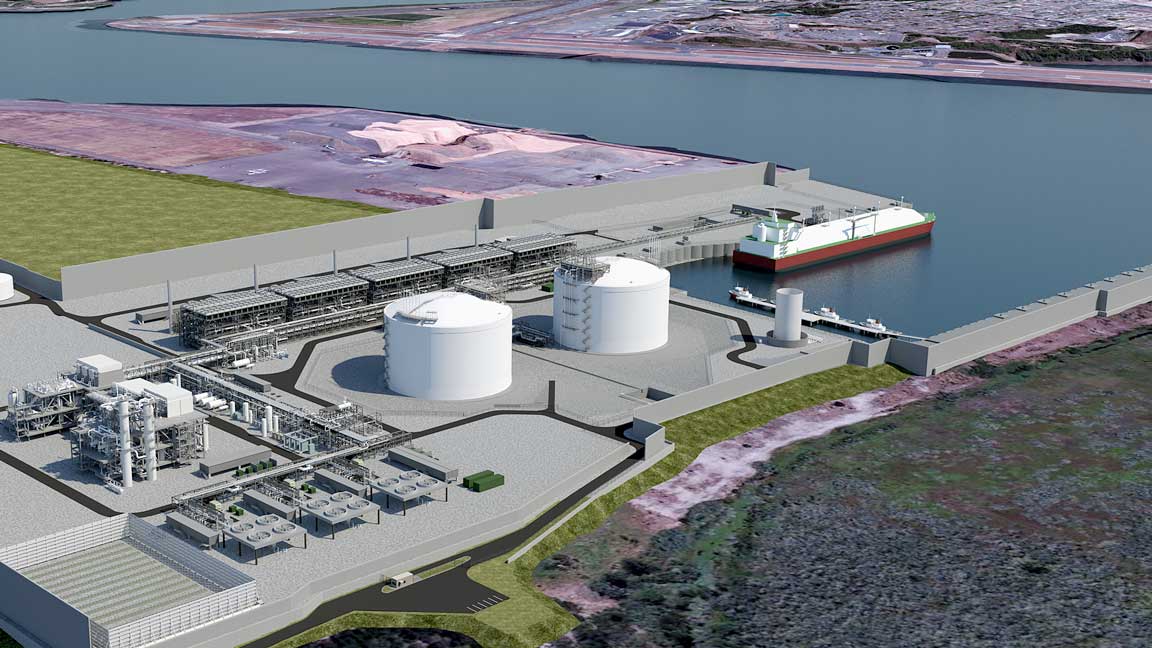US Energy Department Clamps Down on LNG Export Project Extensions
(Reuters) — The U.S. Department of Energy on Friday announced it will change how it approves requests by companies to push back start dates for LNG export projects to get a better picture of true demand for the fuel.
The DOE will now no longer consider a new application for a seven-year commencement extension, unless companies prove they have physically started construction on an LNG export facility, or faces extenuating circumstances. The new policy will not apply to companies that have applications pending.
The measure is one in a series of new orders announced by the DOE's office of fossil energy and carbon management aimed at keeping the U.S. on track to meet its goal of net zero emissions by 2050 while supplying allies with natural gas.
The U.S. has approved over 49 billion cubic feet per day of LNG for non-Free Trade Agreement (FTA) country exports - of which more than half are held by LNG projects that are not operating or under construction and have asked for extensions for when they will commence exports.
This new policy "will allow DOE to better assess whether new non-FTA applications are in the public interest; provide more certainty to the U.S. and global LNG export markets; and ensure that DOE is making decisions utilizing the latest market information and analytical tools available," the DOE said in a statement.
A DOE official said it would help newer LNG projects that use more modern technology and pollution controls to compete for approval.
The agency also announced that it has made a decision on two pending applications. It will approve a first-time request by Port Arthur LNG, LLC and Sempra to extend the start date at the Texas terminal to 2028, and reject a second extension request by Energy Transfer's Lake Charles Exports' project in Lake Charles, Louisiana.
In a related move, the DOE also issued a request for information from LNG industry participants on Friday on strategies and technologies for reducing greenhouse gas emissions and other pollutants throughout the LNG process.
The DOE has been working on setting standards for certified natural gas, a form of the fuel that producers can market as climate friendly.
Related News
Related News

- Energy Transfer to Build $5.3 Billion Permian Gas Pipeline to Supply Southwest
- Enbridge Sees High Demand to Expand 593-Mile Canada-to-U.S. Gulf Oil Pipeline
- 450-Mile Eiger Express Pipeline Gets Green Light for Permian-to-Gulf Natural Gas Transport
- Strike Pioneers First-of-Its-Kind Pipe-in-Pipe Installation on Gulf Coast with Enbridge
- 208-Mile Mississippi-to-Alabama Gas Pipeline Moves Into FERC Review
- LNG Canada Start-Up Fails to Lift Gas Prices Amid Supply Glut
- Strike Pioneers First-of-Its-Kind Pipe-in-Pipe Installation on Gulf Coast with Enbridge
- Enbridge Sees High Demand to Expand 593-Mile Canada-to-U.S. Gulf Oil Pipeline
- Energy Transfer to Build $5.3 Billion Permian Gas Pipeline to Supply Southwest
- Russia Strikes Key Ukraine Gas Interconnector on Romania Border, Disrupts LNG Imports





Comments